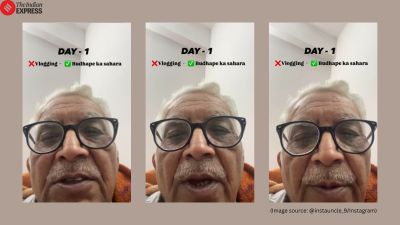The problem with India is8230;
In The Argumentative Indian, Amartya Sen reminds us of India8217;s rich argumentative traditions. The irony is that much more, therefore, w...

In The Argumentative Indian, Amartya Sen reminds us of India8217;s rich argumentative traditions. The irony is that much more, therefore, when we note that despite India8217;s critical ancestry, contemporary Indians seek to define their identity either on the basis of ethnicity or heredity or, indeed, their bank balance. Contemporary Indians do not seek an identity based on the ability to think, reason, and reflect 8216;The thinking Indian?8217; by Ananya Vajpeyi, IE, September 19. So if V.S. Naipaul contends that contemporary India has no thinkers, perhaps it is because contemporary Indians do not like thinkers. Thinkers in this country are tolerated so long as they promise not to get too vociferous in civic dialogue. Anti-intellectualism is the new zeitgeist, in the media as well as other arenas for civic discourse.
Not so alarming, then, is that over the past years the very definition of knowledge has shifted so much that education is now regarded not so much as a heuristic activity, but as the means to a profitable, marketable end. This explains not only the proliferation of vocational schools and colleges, but also the decline of liberal arts in the country.
And yet there are those who tirelessly ask: in a nation of one billion why are there so few intellectuals, why is there so little cerebral ferment? The answer ought to be obvious: India is not a thinking country because it does not want to think about thinking. It8217;s a chicken-and-egg dilemma, but the point remains that if contemporary India has hardly any great writers, it may be because it has hardly any great readers; if contemporary India has hardly any great philosophers, it may be because it has hardly any great interlocutors; if contemporary India has hardly any great thinkers, it may be because it has hardly any great participants.
If India believes it is in its national interest to have more thinkers, it needs to understand that a good quality education is both an individual investment as well as a benefit every Indian should be entitled to. Despite ideological variables, then, access to education ought not to be cast in either/or terms. Or, put differently, India needs policies that promote intellectual inquiry in much the same way that it promotes industry; policies that do not adopt a purely market-driven frame of logic.
Therefore, even as India struggles to make it easy for almost any individual to access a good, basic education 8212; in quite the same way as acquiring a good, basic mobile phone 8212; it needs to provide more funding to learning institutions, better salaries and research facilities to teachers, more student-aid to the needy or the meritorious, and more opportunities for work-study type internships. What India also needs are top quality institutions outside of the techno-sciences that train people in matters related to lived reality so students can think self-reflexively enough to participate in the politics that govern their own lives.
- 01
- 02
- 03
- 04
- 05






























